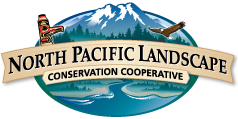Using Early Life History to Uncover Relationships of Fishes
Meeting Date: 4/4/2018
- 4/4/2018
Location: Seattle, WA/Webinar
Website:
OneNOAA Science Seminar Series April 4, 2018 10am-11am
Speaker(s): Peter Konstantinidis Ph.D, Ichthyoplankton Taxonomist& Curator of Vertebrates, Department of Fisheries and Wildlife Oregon State University, Corvallis, OR.
Seminar sponsor: This seminar is part of NOAA's EcoFOCI bi-annual seminar series focused on the ecosystems of the North Pacific Ocean, Bering Sea and U.S. Arctic to improve understanding of ecosystem dynamics and applications of that understanding to the management of living marine resources. Visit the EcoFOCI webpage for more information (http://www.ecofoci.noaa.gov/). Remote Access: Please join my meeting from your computer, tablet or smartphone. https://global.gotomeeting.com/join/390878509
You can also dial in using your phone. United States: Access Code: 390-878-509
Abstract: Morphological characters in adult fishes are often of complex nature which makes the identification of their onto genetic origin difficult to impossible. In most cases ontogeny is the only reliable source to identify shared (homologous)structures and therefore the basis to correctly uncover evolutionary relationships. This is where early life history stages come in to play. Complex morphological characters in larval fishes are often in a simple stage of development compared to their adult congeners, therefore the comparison of those characters are easier and more accurate. For most marine fishes however,early life history stages are unknown which makes it equally challenging but also exciting to work with these taxa. I will present examples of my own research to show how significant early life history stages are for phylogenetic studies of fishes.
Seminar POC:
Subscribe to the OneNOAA Science Seminar weekly email: Send an email to with the word`subscribe' in the subject or body. See http://www.nodc.noaa.gov/seminars/
